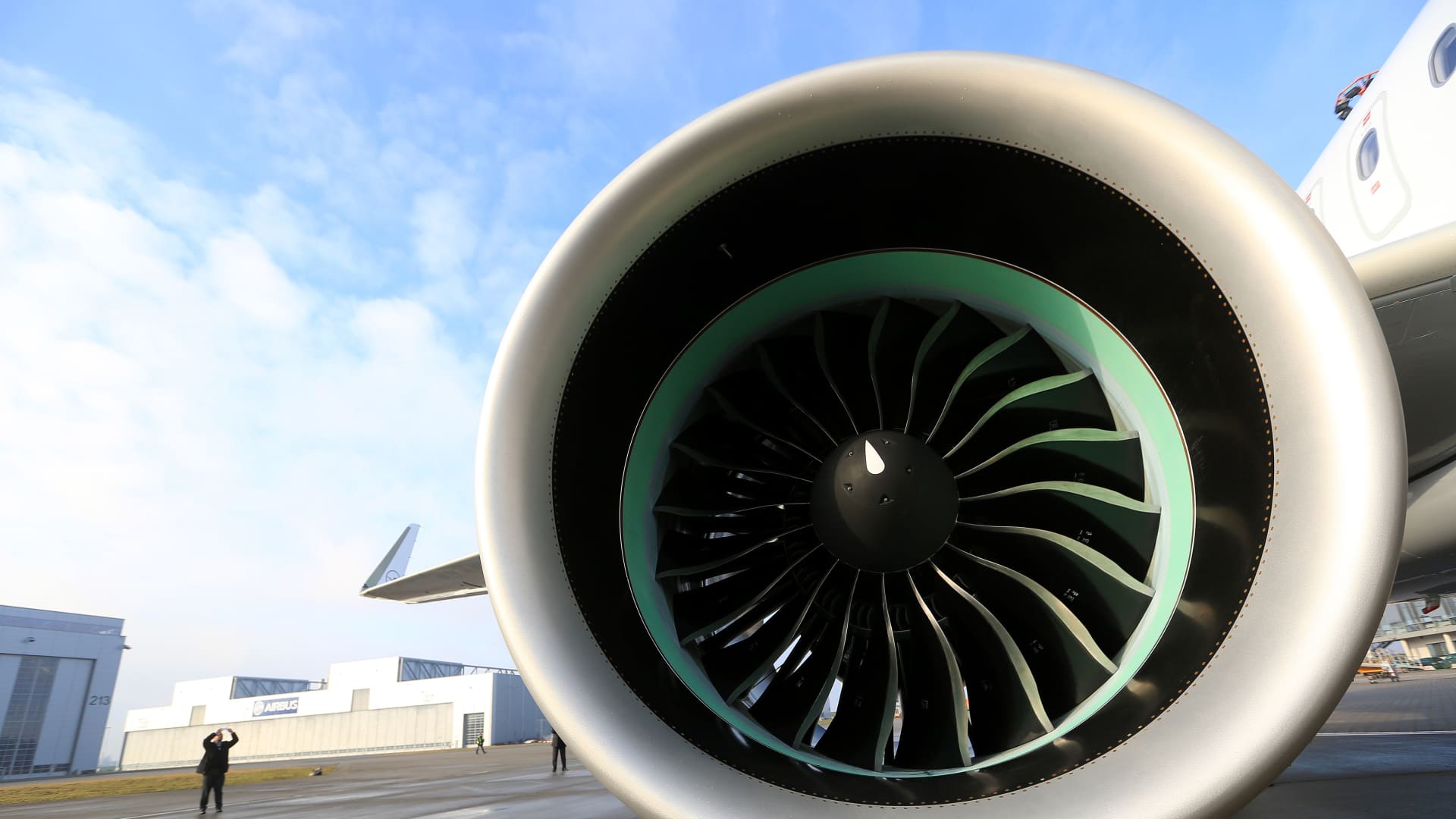RTX tumbles after disclosing jet-engine problem will require accelerated inspections
A Pratt & Whitney PW1000G turbofan engine sits on the wing of an Airbus A320neo aircraft during a delivery ceremony outside the Airbus Group SE factory in Hamburg, Germany, on Friday, Feb. 12, 2016.
Bloomberg | Krisztian Bocsi
Shares of RTX tumbled 13% Tuesday after the aerospace giant said a manufacturing problem with some of its popular engines will require “accelerated” inspections on about 200 airplane engines.
The problem stems from powdered metal used to make some engine parts, RTX, the parent of airplane engine maker Pratt & Whitney, said during a quarterly earnings call. Engines currently in production are not affected, the company said.
RTX, previously known as Raytheon Technologies, trimmed its cash-flow outlook for the year by $500 million to $4.3 billion due to the problem.
“It’s going to be expensive,” RTX CEO Greg Hayes said during the company’s earnings call. “We’re going to make the airlines whole as a result of the disruption we’re going to cause them.”
The problem is the latest challenge for airlines on top of late aircraft from manufacturers, as carriers seek to reap the rewards of a travel boom with limited numbers of available planes.
Pratt & Whitney said that it also expects about 1,000 more engines will have to be removed from airline fleets over the next nine to 12 months. However, the company said it will continue to deliver new aircraft and parts.
The issue will impacting some A320neos, a narrow-body plane and one of the world’s most popular aircraft. It competes with the Boeing 737 Max.
The Federal Aviation Administration said it is aware of the issue and is in contact with Pratt & Whitney as well as airlines affected by the problem
“The agency will ensure that the appropriate steps are taken,” the FAA said.
Delta Air Lines, a major Airbus customer, said it is looking into the issue. Airbus didn’t immediately comment. A JetBlue Airways spokeswoman said the carrier is “working with Pratt to assess the impact to our fleet.”
Meanwhile, shares of General Electric, a rival engine maker, were up more than 6% on Tuesday after the conglomerate raised its revenue and cash flow forecast for the year, in part because of strong demand for jet engines.
For all the latest Technology News Click Here

